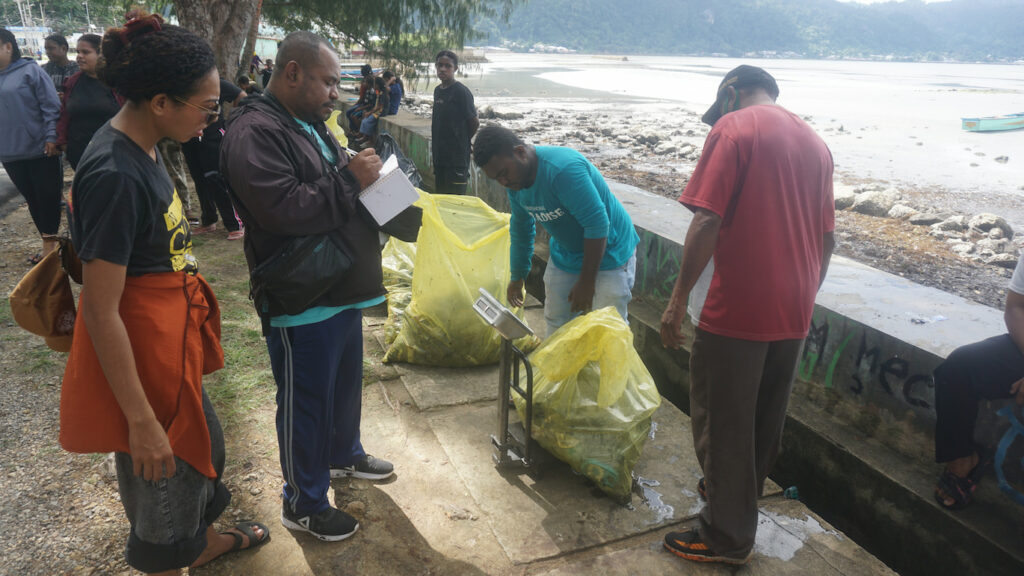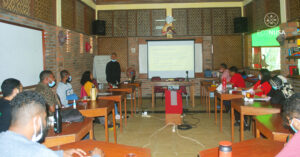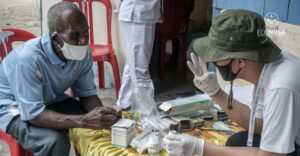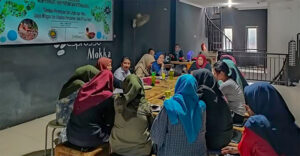
Climate change, according to the United Nations, refers to long-term shifts in temperature and weather patterns, which can occur naturally or be driven by human activities. Since the Industrial Revolution in the 1800s, human activities have become the primary drivers of climate change. The impacts of climate change are felt globally and locally, including in Kaimana, a small town in West Papua.
In Kaimana, the effects of climate change are becoming increasingly evident. Rising temperatures, unpredictable weather patterns, and the emergence of diseases affecting nutmeg plants, which have led to reduced harvests, are just a few examples. Deyvi, a resident of Kaimana, noted that in the last 5-10 years, the air has become noticeably hotter, requiring them to use air conditioning to cool their homes. Additionally, Tomas Tanggarofa stated that the once-predictable nutmeg harvest seasons have become irregular, disrupting the local economy.
Research conducted by EcoDefender Kaimana indicates that climate change has also affected the fishing industry, with changing sea seasons leading to inconsistent catches. This unpredictability makes it difficult for fishermen to anticipate their yields as they once could. Global warming, the greenhouse effect, ozone layer depletion, and deforestation are some of the main factors contributing to these climate changes.
Read Also: A Travel Note: Learning and Sharing Experiences at Youth Strategic Meetings
One of the primary causes of climate change in Kaimana is the significant increase in population since 2019, which has led to a high accumulation of waste. The population of Kaimana grew from 36,250 in 2019 to 37,170 in 2023. This population increase, coupled with significant urbanization, has placed additional strain on the city’s waste management system.
Waste accumulation contributes significantly to greenhouse gas emissions. Organic waste disposed of in landfills decomposes anaerobically, producing methane gas, which is 21 times more harmful than carbon dioxide. Additionally, burning waste generates carbon dioxide emissions, further exacerbating global warming.
EcoNusa has been actively campaigning to raise awareness of climate change and promote better waste management practices. In 2021, EcoNusa initiated a Beach Clean Up action involving church youth and scouts, and established the EcoDiplomacy School to empower young actors to contribute to climate change mitigation efforts in Kaimana.
In 2022, EcoNusa, together with local communities, initiated mangrove planting as part of climate change mitigation efforts. The following year, they continued their climate change campaign through the Aksi Muda Jaga Iklim (Youth Action for Climate Protection), which involved various youth communities in Kaimana. This campaign included a long march, open discussions, and the signing of a commitment to reduce single-use plastics.
Despite these efforts, waste management in Kaimana still faces many challenges. According to Binsar Sitangga, Head of Kaimana’s Sanitation Management Unit (UPTD Persampahan), the city produces around 11 tons of waste daily, but this waste is not yet sorted before being disposed of at the landfill. This presents a significant challenge in effective waste management.
Public awareness of the need to sort waste at home before disposal remains low. To address this, EcoNusa continues to conduct awareness campaigns, such as the Beach Cleaning Up activity held on July 27, 2024. In this activity, 40 participants from various communities collected and sorted waste along the beach in front of the Krooy Meeting Hall, with the total weight of waste collected reaching 1,145 kg.
This activity is part of the Aksi Muda Jaga Iklim 2024 series, which will continue with tree planting while collecting waste as part of climate change mitigation efforts in Kaimana.
These efforts demonstrate commitment to tackling climate change and achieving a zero-waste city. While there is still much work to be done, the steps taken so far offer hope for a cleaner and more sustainable future for Kaimana.







